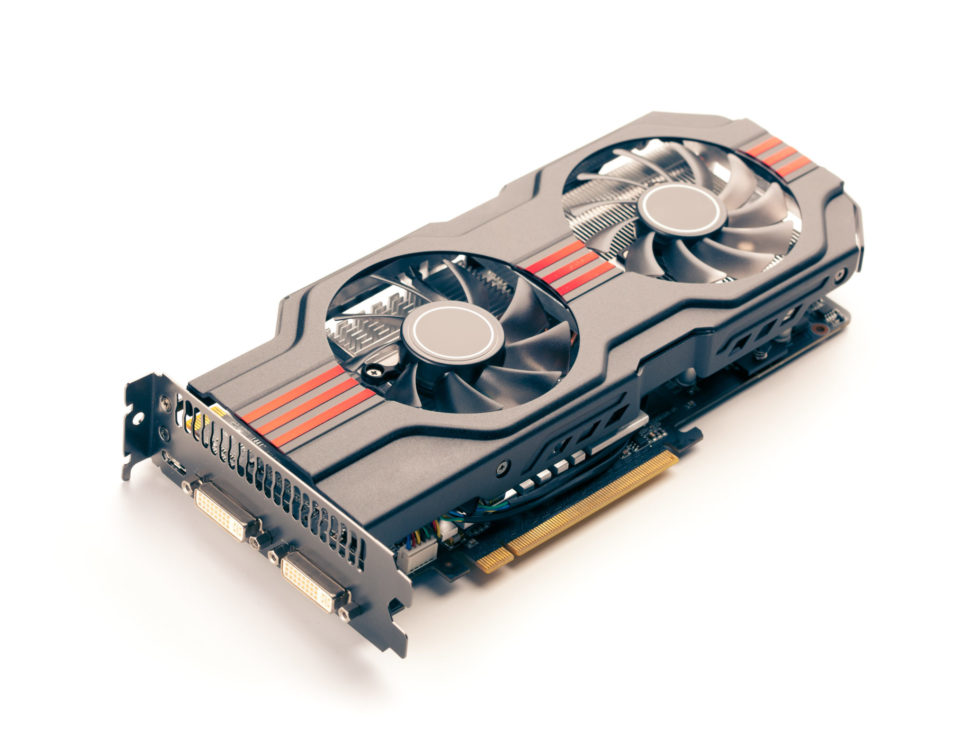The GPU is what powers the video card inside your game console or PC and lets you plunge into your video game world.
Without the GPU serving as a kind of processor for the video card, it’s impossible to process and render graphics.
GPUs can also serve another purpose that they weren’t originally intended for: cryptocurrency mining.
Read More: What 2018 Holds for Bitcoin and Cryptocurrency
The Global Graphics Card Shortage
If Bitcoin mining is no longer as profitable as it once was, this isn’t the case with other cryptocurrencies.
At one point, the top graphics cards were used as cryptocurrency mining rigs. Then, a few years ago, Application-specific integrated circuit (ASIC) processors were developed. They can complete blockchain transactions much faster and while consuming lower power than graphics cards.
But, they’re expensive.
So, now, there is renewed interest in GPU mining driven by the globally increased interest in virtual currencies. This is the main reason behind the recent global graphics cards shortage.
Videogamers are angry at cryptocurrency miners as high-end gaming graphics cards are hard to come by these days. When they can be found, they are sometimes double the usual price.
Major GPU manufacturers have been among the companies that have benefited the most from the spectacular development of cryptocurrencies over the last year.
The crypto-related sales of GPUs at AMD, because Ethereum miners seem to prefer its GPU over Nvidia’s, make up 6-8% of the company’s total sales.
Read More: AMD’s Processors are so Good They may Make Graphics Cards Obsolete
Nvidia is falling behind, but the pioneer GPU manufacturer says it gives priority to its loyal customers in the gaming sphere over miners and urged retailers to do the same.
Despite this promise, that “priority” will remain until Nvidia fixes its supply issue with increased GPU production to catch up with mining demand.
There were even rumors about a new Nvidia graphics chip devoted to mining being in the works.
The Lack of Russian Graphics Cards
In Russia–where besides traditional gamers there’s a lot of crypto miners–the demand for quality graphics cards is at its peak.
With each Russian miner buying up to hundreds of graphics cards, the demand for graphics cards is largely outstripping supply. Prices are soaring, and the shortage is severe.
Other than individual small-time miners, Government-backed initiatives in Russia also aim to secure a share of the global cryptocurrency mining market.
There are no Russian homegrown graphics cards to meet this demand and benefit off of it. The reason could be traced back to the state of the Russian electronics industry as a whole.
The Russian computer industry relies on overseas shipments of GPUs and other computer components to keep running.
Back in the 1950s, during the days of former USSR, a timid computer industry was launched in Russia and had little time to grow before it got halted. By 1970, Russians just started pirating American systems, especially IBM, as a platform for their computers.
The first Russian-made commercial microprocessor (Elbrus) was revealed only a couple of years ago, with specs worthy of a CPU from the Soviet era.
Last year, a Russian state-owned manufacturer released the first computer running on the 28 nanometer 8-core Elbrus chip. For comparison, Intel’s transistors are at the 14-nanometer scale.
The Elbrus microchip won’t likely dethrone Intel’s processors any time soon. And, the Russian graphics cards industry has a lot to do to catch up and produce its own graphics cards for both gamers and miners.
In short, Russia doesn’t produce graphics cards because it started too late. Now, it’s just easier to depend on other nations for their supply. But, with recent moves to isolate their internet structure from the rest of the world, future Russian legislation or international sanctions may make this strategy untenable in the near future.



















Comments (0)
Most Recent